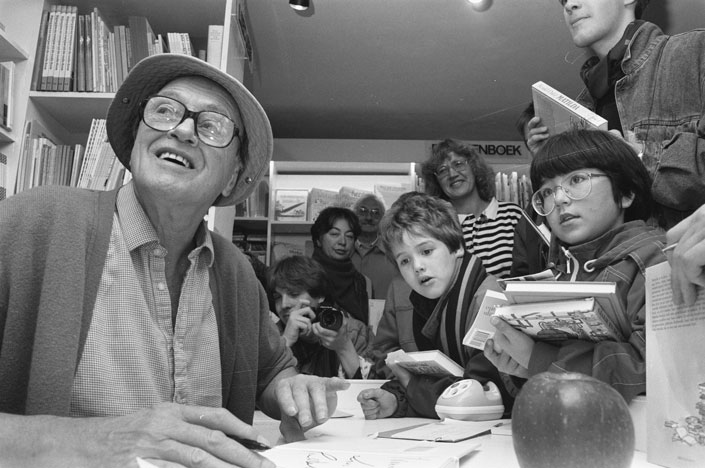Blog

Speech Police Partner with Puffin Books to Censor Classic Children’s Stories
On February 18, Puffin Books announced it would be revising and issuing new versions of classic children’s stories by Roald Dahl such as Charlie and the Chocolate Factory, Matilda, and James and the Giant Peach. Dahl has been dead since 1990.
The decision was the result of a partnership between the Roald Dahl Story Company (which controls the rights to Dahl’s books) and an organization called “Inclusive Minds,” a company that pairs so-called “Inclusion Ambassadors” with authors to “help identify language and portrayals that could be inauthentic or problematic.”
Inclusive Minds claims not to “edit or rewrite texts,” but their actions say otherwise.
The changes to the books include modifying the description of Augustus Gloop, the gluttonous child in Charlie and the Chocolate Factory, from “enormously fat” to “enormous”; the famed Oompa Loompas are now gender-neutral “small people” instead of “small men”; the tractors described in The Fabulous Mr. Fox are no longer “black, murderous, brutal-looking monsters” but now “murderous brutal-looking monsters.” In the novel Witches, a woman masquerading as a “cashier in a supermarket or typing letters for a businessman” is now a “top scientist or running a business.” In James and the Giant Peach, Aunt Sponge, who was once “terrifyingly fat / And tremendously flabby at that” is now merely “a nasty old brute.”
Public outcry in response to the news was loud and swift, from everyday American to British royalty. Queen Consort Camilla Parker Bowles said, “Please remain true to your calling, unimpeded by those who may wish to curb the freedom of your expression or impose limits on your imagination.” Comedian Ricky Gervais pondered “whether they’ll change any of the words I’ve used in my work after I’m dead, to spare those who are fragile and easily offended.” Salman Rushdie, an author who was stabbed at an August 2022 book event, said of the censorship, “Roald Dahl was a bigot and he never supported me, but really?”
On February 24, Puffin Books backtracked, announcing they would print two versions of Dahl’s books: new, revised, and censored versions and unchanged “classic” editions.
…unless you have the e-book versions of the Dahl tomes. On March 14, news broke that Puffin Books would be forcing e-book readers to accept and download the updated editions altered by their “inclusive” sensitivity editors.
The Foundation for Individual Rights (FIRE), which has collaborated with the New Tolerance Campaign in the past, rightly stated: “Let’s leave Dahl’s words the way he intended them to be read. Let the work speak for itself, so we can all speak freely about the work.” We agree.
